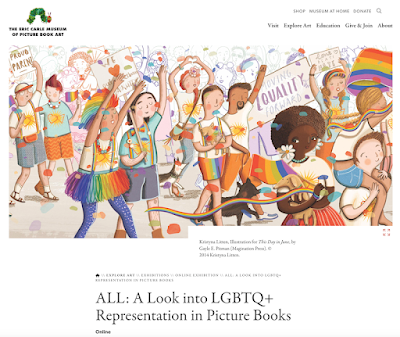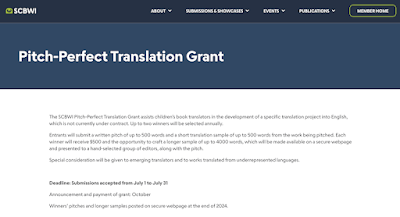After sending out my first picture book submission to an editor in 2009, little did I know it would be 2021 before I would hold my first published picture book in my hands. With over 160 rejections of 11 manuscripts before I received my first “YES”—an offer from an agent—it would be another year and a half (and dozens of rejections with five manuscripts) before I received my first book contract. How did I stay afloat during that long and bumpy journey to my first published book? The Three P’s: Practice, Patience, and Perseverance.
Practice:
There’s a common saying that it takes 10,000 hours to become an expert at a skill. Even if 10,000 hours is not cut in stone, we all know that to be good at anything–a sport, performance art, etc.–it takes practice. No one becomes an expert overnight. The same holds true in writing. In order to become better at writing, you have to write. A lot. When I decided I wanted to be a picture book writer in 2006, I signed up for a course on writing for kids. I learned a lot about writing through that course but I still had no idea how long it would take to get published.
Throughout the next decade, practice entailed taking classes and workshops, participating in writing challenges (see post here), typing up lots of picture books (see post here), and joining critique groups to improve my writing (see post here). And continually writing new stories. Even if some of my stories didn’t sell, every story I wrote taught me something about writing. They were my practice.
Patience:
My Mom’s favorite saying while I was growing up was “Patience is a virtue.” I've certainly needed patience in the last 15+ years. . . and still need it now. I’ve learned that once I get some words down on paper—that awful first draft—I need to let them sit. Then revise. And let them sit. And revise some more. No matter how much of a hurry I am to get a story submitted to my critique group or editor, my stories need time. They need to sit on that piece of paper and also simmer in my brain for a few days, a few weeks, or even a few months. Only then can I see my words with fresh eyes and find a way to make them better.
Another need for patience in this industry is in the submission process. This industry is SLOW. Molasses slow. After submitting to either agents or editors, it might be months or even a year, before you hear back. If you hear back. Even now that I am agented, a story might sit in an editor’s inbox for months. While waiting is hard, the best advice is to just write another story. Patience is easier when you are busy. (Another saying my Mom was fond of.)
Perseverance:
Rejection is par for the course. To get traditionally published, you have to be ready for it. Thick skin is an absolute necessity. During my first few years as a picture book writer, I kept revising the same two stories. I thought that if I just made the right changes, they would sell. The truth is, not every story will sell. It finally dawned on me that I had to let go of those two stories and write new ones.
Sometimes perseverance meant taking query sabbaticals when my stories weren’t gaining traction. Did I need to revise those stories? Or should I write new ones? Either way, it meant more “write, revise, repeat.” Many times I considered quitting. But I knew that while there was no guarantee I would ever find an agent or editor interested in my stories, if I quit, that guaranteed I would never be published. So I kept going.
I still needed to persevere even after I signed with with my first agent in 2017. A lyrical picture book had caught her eye and I thought a book contract was right around the corner. Alas, it wasn’t. Even after four or five acquisition meetings, that first story never sold. And my agent tried hard, SO hard to sell it. The market was just not interested in it. We went on to sub three more picture books—another lyrical one and two picture book biographies. By spring of 2018, with still no offer, she suggested I try something different. So I changed tactics and wrote a rhyming nonfiction one about animal adaptations. And finally, in 2019—a full year and a half after I signed with my agent—we had an actual offer. FREAKY, FUNKY FISH: ODD FACTS ABOUT FASCINATING FISH came out in May 2021, about 15 years (and 11 manuscripts) after I submitted my first picture book.

Not everyone's writing journey will take as long as mine did. (During those 15+ years, I was also raising three boys.) Many writers find success much quicker. But, the children’s literature industry is hard. Rejection can take its toll. I now have three picture books published with two more on the way. Will I sell another one? I’m not sure. But when I get discouraged, I remind myself that practice, patience, and perseverance won’t guarantee anything, but they’ve gotten me this far. All I can do is to keep on trying.
 |
| ©Yanka Photography |
Debra Kempf Shumaker started reading at the age of four and hasn't stopped since. She grew up on a small dairy farm in Wisconsin but now writes picture books from her home in the suburbs of Northern Virginia. She is the author of FREAKY, FUNKY FISH (2021), TELL SOMEONE (2021), PECULIAR PRIMATES (2022), and the upcoming WIND IS A DANCE (October 1, 2024).
Debra is a member of SCBWI, several critique groups, and also a co-host of #PBPitch, a Twitter pitch party for picture books. Debra reviews picture books on Instagram every Monday, Wednesday, and Friday, firmly believing there is a picture book for every reason, every season, and every age. Visit her online at www.debrashumaker.com, on Twitter or X at @ShumakerDebra, on Instragram at @debrakshumaker, and Bluesky at @debrakshumaker.


.png)





























%20copy.jpeg)